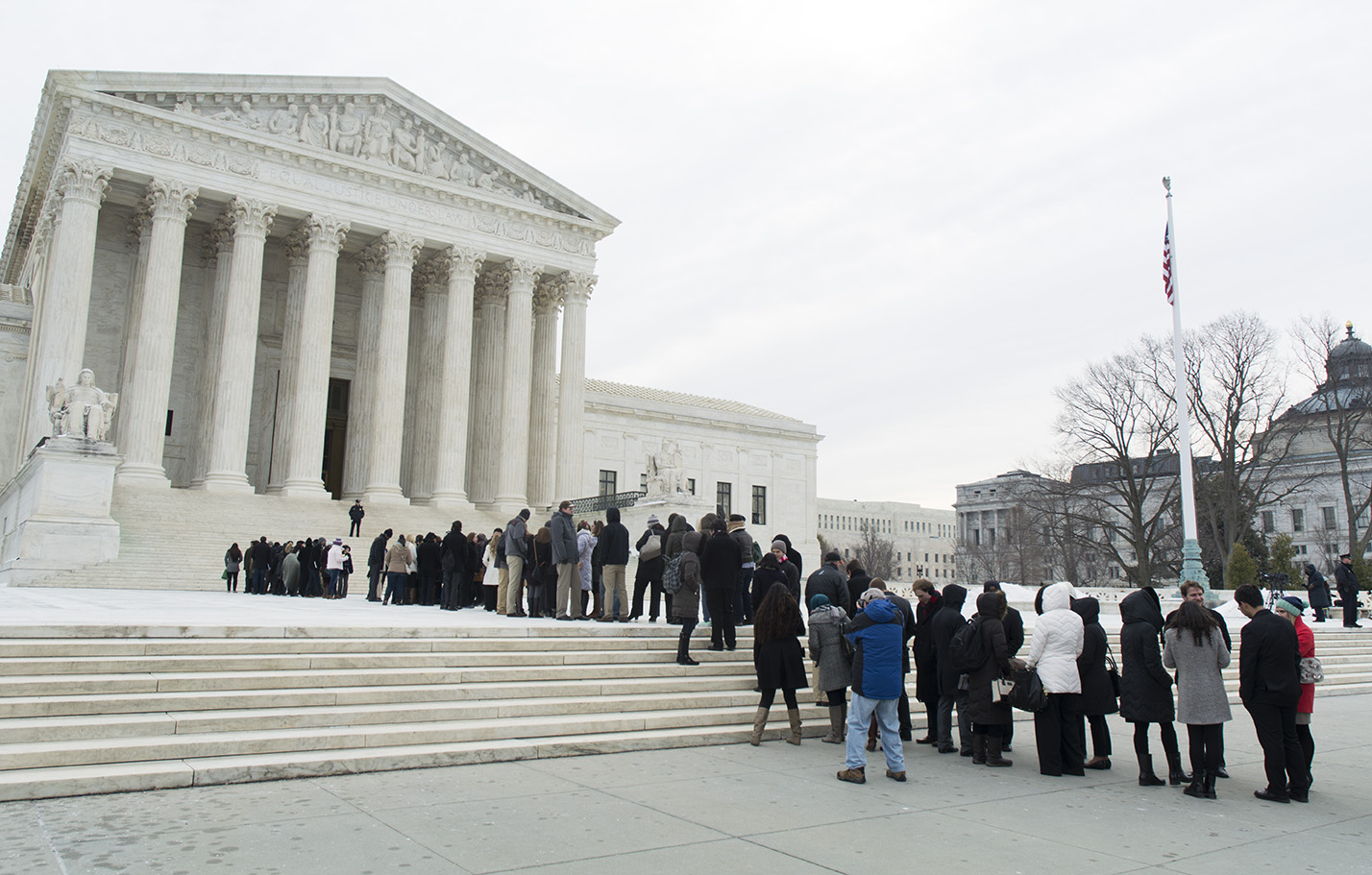EEOC v. Abercrombie
AT ISSUE
Abercrombie Kids refused to hire a highly-ranked job applicant because she wore a religious headscarf. Does an employer have a duty to reasonably accommodate an employee’s religion and avoid religious discrimination against prospective employees?

BJC’S POSITION
BJC and 14 other groups filed a friend-of-the-court brief defending a person’s right to wear a religiously-mandated headscarf while at work. The brief makes clear that this case is not just about an individual’s desire to wear religious garb. Conflicts between work and religion are common, but they can often be resolved through conversation between employer and employee.
“In many employment contexts, an individual’s religious needs can be met more easily than an employer first assumes,” said BJC General Counsel Holly Hollman. “This case is about making sure prospective employees are not categorically disqualified from work opportunities based upon religion.”
STATUS
On June 1, 2015, the U.S. Supreme Court affirmed BJC’s position in an 8-1 ruling.
The Court’s decision, written by Justice Antonin Scalia, points out that detailed knowledge of a religious practice is not necessary. “An employer may not make an applicant’s religious practice, confirmed or otherwise, a factor in employment decisions,” according to the decision.
From the Brief
“Protection of religiously motivated conduct in the employment setting is highly important to believers of virtually all stripes, and to the religious bodies to which they belong.”
“[R]eligion is unlike the other protected characteristics or traits in Title VII. The others (race, color, sex, etc.) merely require equal treatment in order to have equal opportunity. But religion requires special treatment (vis-à-vis other employees or applicants) in order to have equal opportunity. As we now show, the need for such accommodations is particularly important for two types of religious beliefs: those relating to Sabbath and other holy day observances, and those (like the belief at issue in this case) relating to religious dress and grooming standards.”
“Moreover, while work-religion conflicts are common, they can often be accommodated without undue hardship as long as both employees and employers have an adequate incentive to undertake the necessary dialogue. And in practical terms, that is the issue at the heart of this case—how to ensure that employers as well as employees have adequate incentives to initiate and participate in such problem-solving dialogue.”
Featured
Resources
Friend-of-the-court brief
Signed by BJC, the General Conference of Seventh-day Adventists and 13 other groups, including the National Association of Evangelicals, American Civil Liberties Union, Christian Legal Society, and American Islamic Congress
3 things to know about the Abercrombie ruling
By BJC Blogger Don Byrd (June 2, 2105)
SCOTUS headscarf decision a victory for workplace religious freedom for all (PDF)
Report from the Capital (June 2015)
Related
Hear more about the case in our video about working with the courts. This case is discussed in detail beginning at 1:34.




